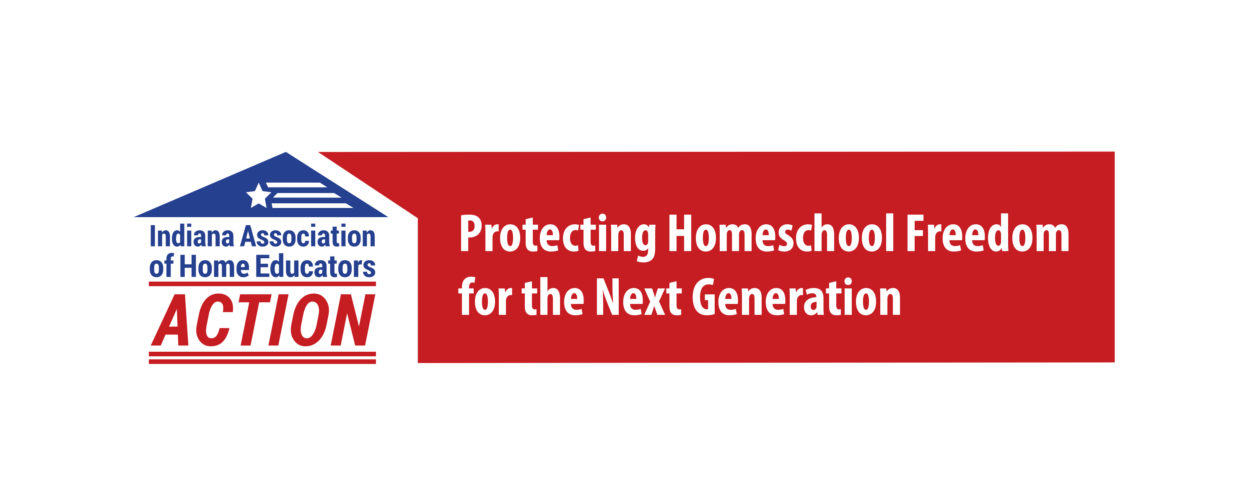This is a continuation of our multi-part series. Read Part 1 here.
4. Conditioned to Compromise, Conform, Lie and Cheat to get the Grade, “Success”, The Positive Reinforcement Reward.
Students want so much to make the grade, get the score, have ‘success’, please the test givers, their parents, peers, audience and get the conditioned reward, that they confess to lying, cheating and stealing to do so…and being okay with their “ethic.”
Josephson Institute on Ethics…
- Age: 17 or under (51%); 18-24 (36%); 25-40 (18%); 41-50 (11%); Over 50 (10%). Teens are five times and young adults (18-24) are three times more likely than those over 40 to hold the cynical belief that lying and cheating is necessary to success. This belief is one of the most significant and reliable predictors of dishonest behavior in the adult world.
“According to the Josephson Institute of Ethics 2010 survey of 43,000 young people, 92 percent of students were satisfied with their personal ethics and character. However:
While 89 percent of students believe that being a good person is more important than being rich, almost one in three boys and one in four girls admitted stealing from a store within the past year. Moreover, 21 percent admitted they stole something from a parent or other relative, and 18 percent admitted stealing from a friend.
On lying, more than two in five said they sometimes lie to save money (48 percent of males and 35 percent of females). While 92 percent of students believe their parents want them to do the right thing, more than eight in ten confessed they lied to a parent about something significant.
Rampant cheating in school continues. A majority of students (59 percent) admitted cheating on a test during the last year, with 34 percent doing it more than two times. One in three admitted they used the Internet to plagiarize an assignment.
In its 2008 report on the relationship between un-ethical behavior in school and unethical behavior as adults, the Josephson Institute of Ethics reported:
Regardless of current age, people who cheated on exams in high school two or more times are considerably more likely to be dishonest later in life. Compared to those who never cheated, high school cheaters are:
Three times more likely to lie to a customer (20% vs. 6%) or inflate an insurance claim (6% vs. 2%) and more than twice as likely to inflate an expense claim (10% vs. 4%).
Twice as likely to lie to or deceive their boss (20% vs. 10%) or lie about their address to get a child into a better school (29% vs. 15%) and one-and-a-half times more likely to lie to spouse or significant other (35% vs. 22%) or cheat on taxes (18% vs. 13%).” [4]
5. The problem with Digital media and the human brain
It is a basic practice that when cognition is low, “educators” use behavioral science.
When the client or student is low on cognitive skills, the mediator employs a system of currency, the rewards, and coercions to get them to learn, conform, and cooperate with the desired behavior. The stickers on the refrigerator, the ice cream after the doctor appointment, the candy, the rewards cards, coupons, the new video game, material enticement, whatever shiny object to attract and hold up as an external currency. This is how animals are trained with treats, or affection for a good performance. This is the external reward under the control of the giver of the reward to define “success” or failure and keep the student on the leash.
In order to keep cognition low, planners continue to employ behavioral science. The human brain is an information processor. Information to process is received via the sensory systems of sight, sound, smell, balance, proprioception, taste, temperature, and pain and converted to representations in the brain. Sensory information (stimuli) must be transduced from the various forms of receptors into electrical, chemical and structural changes within the brain. This involves encoding, organization, elaboration and integration with previous experiences and memories that are stored all over the brain, nervous system and muscle. This takes time to create an accurate representation in a brain and to catalog it for appropriate recall, analysis and application of reasoned thought. Information processing in the human is an analog process, not a binary, digital one. [9]
When human sensory systems receive too much information, too rapidly, from too many sources, with too much change in scenes, volumes, colors, too many visuals, the systems cannot handle the volume of stimuli. This overwhelms the system and it resorts to the emotional, limbic, survival centers of the brain. This is the same default for preconditioned responses, fear conditioning, stimuli that the amygdala has associated with previously fearful, traumatic, or unpleasant experiences. The Midbrain, functions primarily on an emotional, fight, flight, fright, reactionary, and survival oriented level. This is not cerebral cognition. This is not rational, reasoning, or thoughtful response.
This is the level of Operant Conditioning. Trained impulse reflexive behaviors. Like Pavlov’s dogs, and Skinner’s Utopianists. Success means survival in “The Call of The Wild” and in government subsidized “education” for 21st-century labor force development.
“A government strong enough to act in defiance of public feeling may disregard…for it is able to punish. But a government entirely dependent on opinion looks for some security as to what that opinion shall be, strives for the control of the forces that shape it, and is fearful of suffering the people to be educated in sentiments hostile to its institutions.” ~ Lord Acton (1834-1902) Essays in the History of Liberty
6. Forging Shackles: The Master – Slave or Patron – Proselyte Paradigm
The consequences of operant conditioning go beyond the immediate reinforcements. A student who tests well, will be offered monetary rewards, scholarships, special considerations in placement and in turn become indebted to his patrons. This is the simple master-slave relationship. The relationship becomes one of obligation of servitude to identify with one’s patron in funding, master in academia and their ideologies.
A student who receives an academic or merit scholarship is psychologically under obligation and angst to perform well in his studies, rank high in testing, and carry on the creed, in order to continue to receive the monetary rewards, subsidies, approbation and favors. 
Often these relationships result in references for future professional positions in academia, research consortia, networks or related positions in the intelligentsia, bureaucracy, or influential laborforce. By this time, the recipient has long lost their individuality and the patrons know it. These well-trained proselytes, high-performance pleasers, become the fiercest defenders of their patrons, mentors, system and alma maters in which they excelled, received recognition, approbation, and identity. They will quite often demonstrate an obeisance, a worship of the patrons and masters who have forged their chains.
To accept money from another creates a relationship in which the recipient is the slave and the donor the master. The slave will continue to carry the baggage.
7. Big Money in Test Prepping
Students in public schools spend over half their school days in preparation for accountability testing. Student Outcomes on testing determine funding, program continuation, teacher and administration employment. Now that vouchers have infected many private schools, they too, spend days on end prepping to pass the state and national tests to make the grade to continue voucher dollars. Prepping vendors market videos, on-line courses, private tutoring, extended courses, test prep study guides, etc.
Parents shell out millions (thousands per student) to purchase Junior all the possible advantages to score high on the college placement, industry, and digital badge tests. They pay thousands of dollars in prep and continue to pay for taking the same exams repeatedly to keep raising scores. Practice does not make perfect, but it does create permanence in conditioning the logic of the test. Those that invest dollars in prepping to give the desired answers often get rewarded with higher scores. Test scores are often used to award monetary scholarships, which again reinforces the notion that it takes money to get more money. This also reinforces the attitudes expressed in the Josephson Institute Ethics studies on why students are willing to lie, cheat and steal to get the high scores. And why so many go on to lie, cheat, and rationalize their unprincipled actions later in life. They’ve been ‘rewarded,’ conditioned to do so.
8. Academia reinforces the notion that there is No Absolute Truth.
In a survival oriented society of animals, the concept of moral absolutes, or absolute truth has little bearing. It is survival of the fittest, might makes right, the Darwinian dogma promoted by socialists that invaded campuses over a century ago.
Humanists (B.F. Skinner signed the Humanist Manifesto II) aligned with Marxist philosophies have labored toward creating a Utopia. They continue efforts to systematically transform humans to fit their idealized Utopian society.
The Academy for Systemic Change, promoting the utopian plans of MIT systems engineers, Peter Senge and Joe Hsueh, provides insightful systems maps to produce their “Effective Responsible Happy Citizens” goals. “The goal is to invest in various high-leverage points to the extent where the system tips to self-sustaining change processes.” [8]
Those key leverage points consist of: Peer Pressure Network Loops and Student Testing Outcomes.
In his book, The Fascist, His State, His Mind, E.B. Ashton points out that the Germans and Italians embraced fascism because the mindset of the people was such that they wanted it. Focusing on material goods, productivity, and prosperity as coordinated and distributed by the state, removed from the people the need to think. Citizens under Mussolini and Hitler’s National Socialist Workers (Nazi) Party, had only to do, to obey, to be “Effective Responsible Happy Citizens” just as the Academy for Systemic Change envisions for our citizens today.
The problem with conditioning citizens using awards, stickers, degrees of expertise and positions of authority in business and bureaucracy is that they eventually begin to believe they really are experts, above the law, above their fellow citizens, above God. This is what Chuck Colson said had allowed him to lie, cheat and steal during the 1970’s Watergate scandal and what the German Academics said allowed them to take the oath to the Nazi party. Their extensive education had taught them that they could rationalize away their principles, their faith, their consciences and convictions of right and just as defined by God.
[4] http://josephsoninstitute.org/surveys/
http://library.cqpress.com/cqresearcher/document.php?id=cqresrre2000092200
[8][Academy for Systemic Change Common Core State Standards Systems Map Version 2013.6.13]
To be continued.
Dr. Dawn Kazmierzak has over twenty years in private practice Optometry. Academic stickers include majors in biology, neurobiology, neuroscience, visual science, doctorate of Optometry; post-graduate work for SUNY and West Point (USMC) in developmental and hospital-based Optometry; cognitive science Feuerstein trained in Mediated Learning Experience (MLE) and FIE (Feuerstein Instrumental Enrichment). Having been transmitted a love of learning and commitment to discerning the truth from her parents, she and her husband labor to model this transmission to their daughter.
It was (and is), the anchors of faith in Christ and Biblical study that shielded Dawn from the operant conditioning that accompanies academic “successes.” These studies and stickers (degrees, certifications) were chosen in preparation for participation in third-world medical missions. If individuals lack the abilities to see, it is very difficult to teach themselves, grow in their faith, or provide for their families. “Where there is no vision, the people perish.” Proverbs 29:18 This applies to physical, cognitive(mental) and spiritual ‘sight.’
You, as a homeschool parent, do not need all these stickers to transmit truth to and equip your child for their future; but, in her opinion, one does need a relationship with The Author, who defines what is true, right and just. Genesis 18:19. This relationship will provide all you need.
Blessings on your transmissions of your culture!

1 thought on “Testing, Assessments, Standards, Teaching Machines… The Science of Creating Obedient Citizens. Behavioral Science. Part 2”